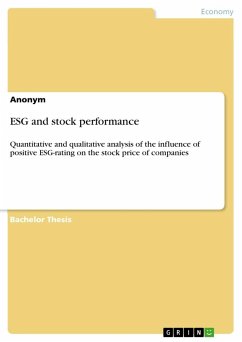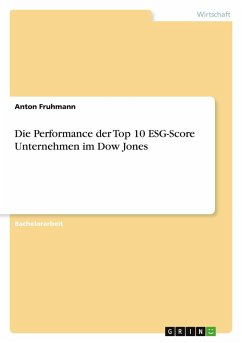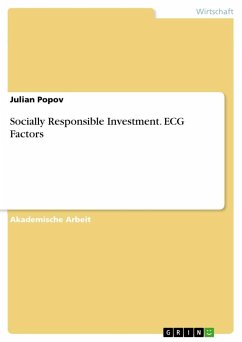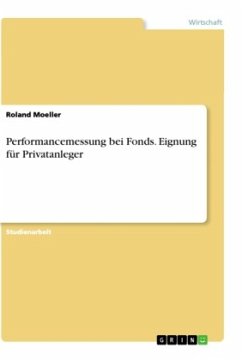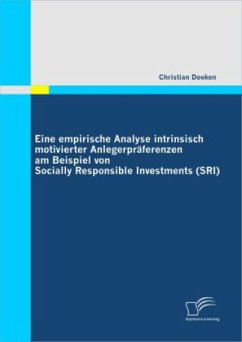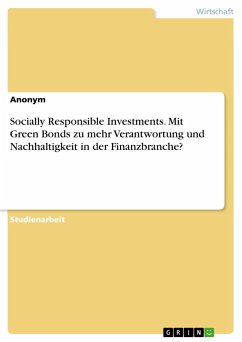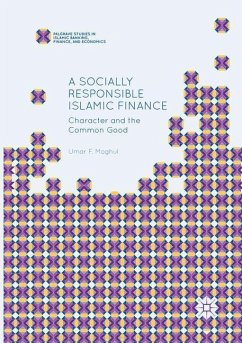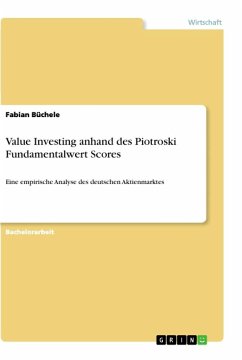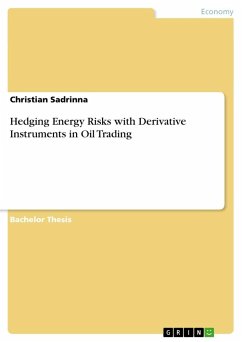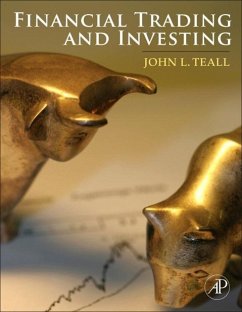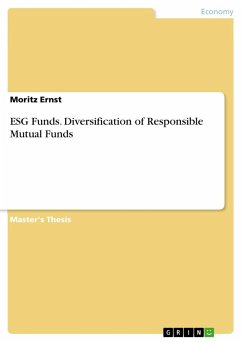
ESG Funds. Diversification of Responsible Mutual Funds

PAYBACK Punkte
0 °P sammeln!
Master's Thesis from the year 2020 in the subject Business economics - Banking, Stock Exchanges, Insurance, Accounting, grade: 1,7, Justus-Liebig-University Giessen, language: English, abstract: The social responsibility of business is to increase its profits. This is frequently quoted from Milton Friedman, who responds with his doctrine to a corporate¿s social responsibility towards its shareholders. This former economic approach highlights therewith the entrustment of investments solely for shareholder value maximization and declares a minimum of social responsibility towards the public, th...
Master's Thesis from the year 2020 in the subject Business economics - Banking, Stock Exchanges, Insurance, Accounting, grade: 1,7, Justus-Liebig-University Giessen, language: English, abstract: The social responsibility of business is to increase its profits. This is frequently quoted from Milton Friedman, who responds with his doctrine to a corporate¿s social responsibility towards its shareholders. This former economic approach highlights therewith the entrustment of investments solely for shareholder value maximization and declares a minimum of social responsibility towards the public, the society, and the environment. Based on a traditional background, investors have pursued financial returns as a measure of their investment outcomes. Contrary to earlier deliberations, the mutual fund industry extended an investment typology in the United States (U.S.) in the seventies, which incorporates environmental and social criteria, and later on governance aspects in investment decisions. Successively, investors started to track the supportive and harmful corporate activities on society and environment they had invested in. This new approach called sustainable investing describes mutual funds striving for financial success while honoring the relationship with and the impact on stakeholders. The concept challenges the classical risk-return relationship that either maximizes the expected return for a certain level of risk or minimizes risk for a favored level of expected return. Nowadays, sustainable issues such as global warming and child labor do reject earlier attitudes of investment approaches reflected by the quote of Milton Friedman introducing an alternative view on investment policy. Since stakeholder worldwide are raising concerns about sustainable issues, expectations towards financial markets are increasing addressing these concerns and deliberating on them. The overall perception changes from capital maximization to the idea that the highest use of capital is to make money working beneficial for the betterment of life. Sustainable investing purposes of institutional investors highlight an increasingly stronger commitment towards ESG issues. Collected data from a survey of BNP Paribas (2019) indicate that the share of asset owners and asset managers who invested at least 25% of their funds in ESG funds was equal to 48% and 53%, respectively, in 2017. Two years later, the share of asset owner and asset manager increased considerably to 72% and 62%, respectively, in 2019.




